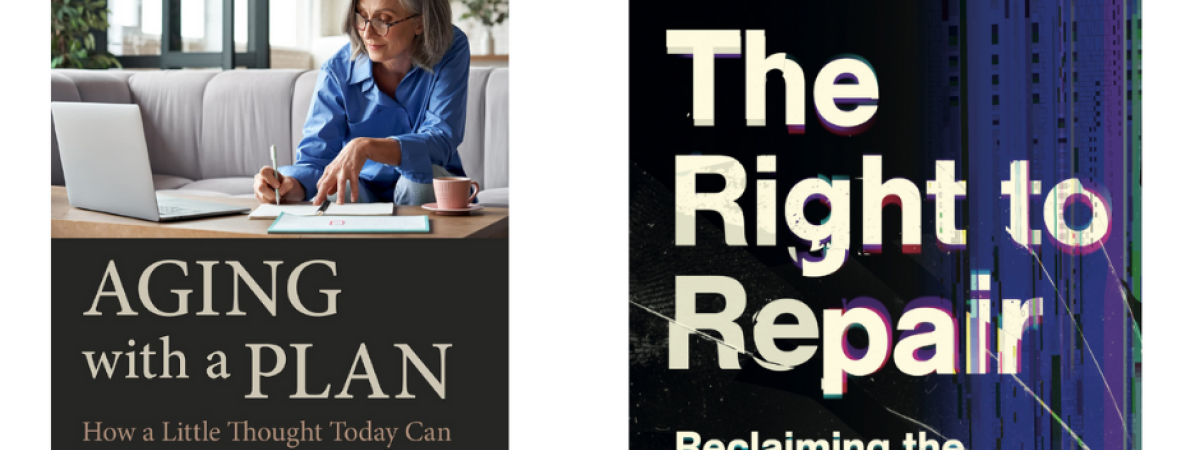Two books by CWRU School of Law faculty were published in the first two months of 2022—Aging with a Plan: How a Little Thought Today Can Vastly Improve Your Tomorrow, Second Edition (First Hill Books, Jan. 2022) by Sharona Hoffman, the Edgar A. Hahn Professor of Law and co-director of the Law-Medicine Center; and The Right to Repair: Reclaiming the Things We Own (Cambridge University Press, Feb. 2022) by Aaron Perzanowski, the John Homer Kapp Professor of Law and associate director of the Spangenberg Center for Law, Technology & the Arts.
Hoffman’s Aging with a Plan is a comprehensive resource for readers approaching middle age and beyond and facing the prospects of their own aging and of caring for elderly loved ones. It addresses legal planning, retirement savings and expenses, long-term care, end-of-life decisions, navigating the health care and insurance systems, driving, retirement communities, and more.
“Everyone is going to face challenges as they age, and little in life prepares us for many of them,” Hoffman said. “It is often very difficult to make good decisions when you are in the midst of a crisis that you did not anticipate. This book tries to provide people with the tools they will need to help themselves and others.”
Perzanowski’s The Right to Repair takes a look at the history of repair to show how companies use intellectual property law, software restrictions, pricing strategies and other tactics to keep consumers from fixing the things they own. He demonstrates how this strategy, while profitable for companies, comes at great consumer and environmental costs; and he provides information to help readers fight back for the right to repair what’s their own.
“You can buy a toothbrush, a garbage can and a hair brush with software embedded in it. That gives companies more immediate and direct control over the products we buy than ever before,” said Perzanowski. “I’m frustrated that working people are forced to choose between getting a phone fixed or paying their rent. I’m also terrified by the environmental consequences of products that may be cheaper to replace than repair.”
Perzanowski does see reason for some optimism. For example, Apple now sells some parts directly to consumers following decades of refusing to do so.
“That’s a sign that this right to repair movement is having an impact on company policies,” Perzanowski said. “If you can force a company to change—that tells me about the power of the arguments being made.”
“Our faculty ranks #36 in the nation in scholarly impact,” notes Co-Dean Michael Scharf. “As the latest books by Professors Hoffman and Perzanowski show, they remain on the cutting edge of important legal scholarship.”





